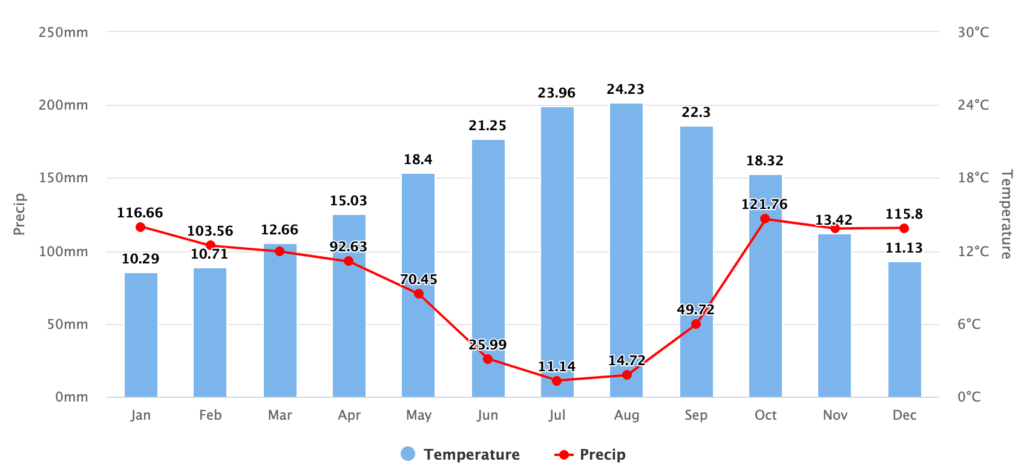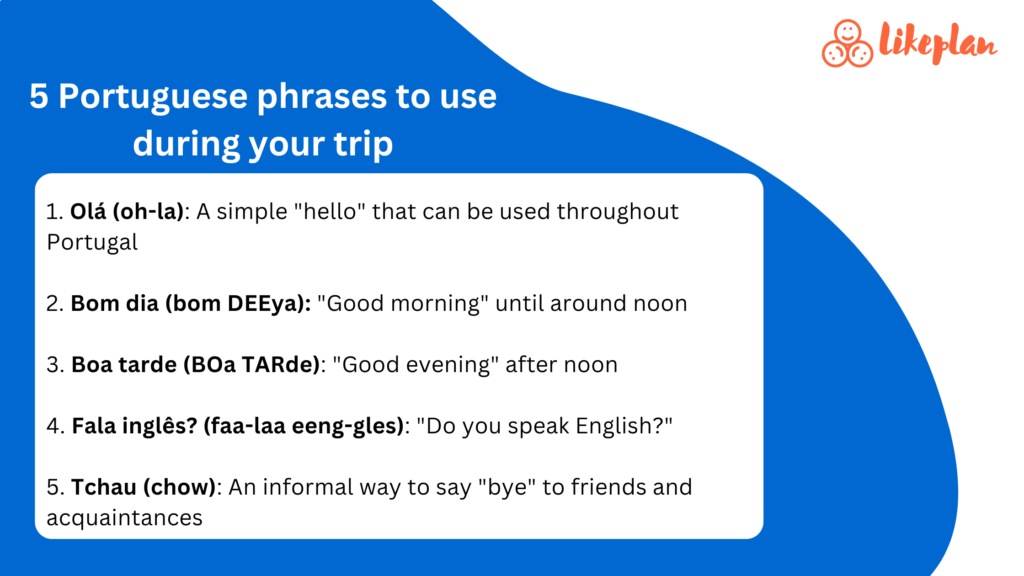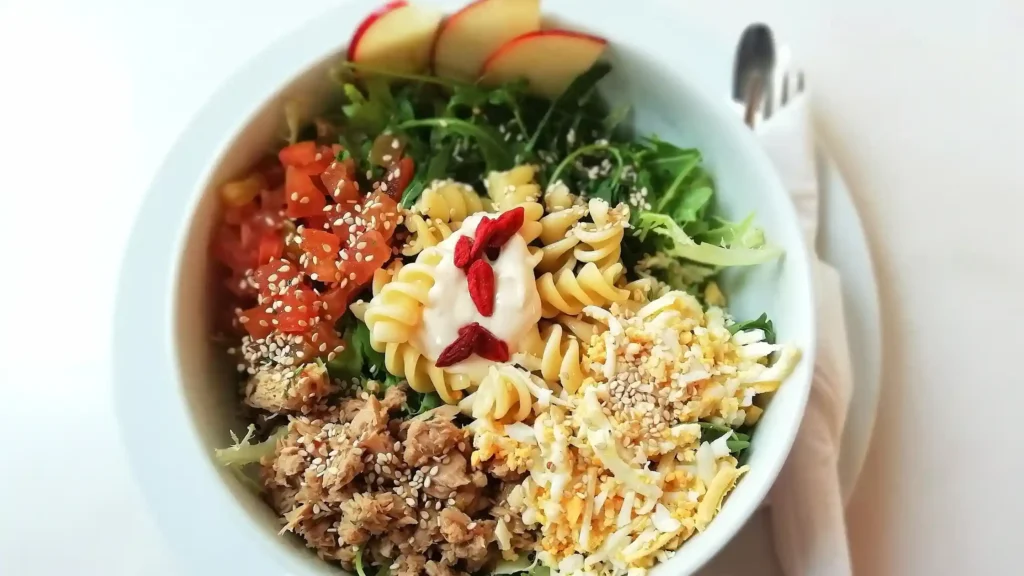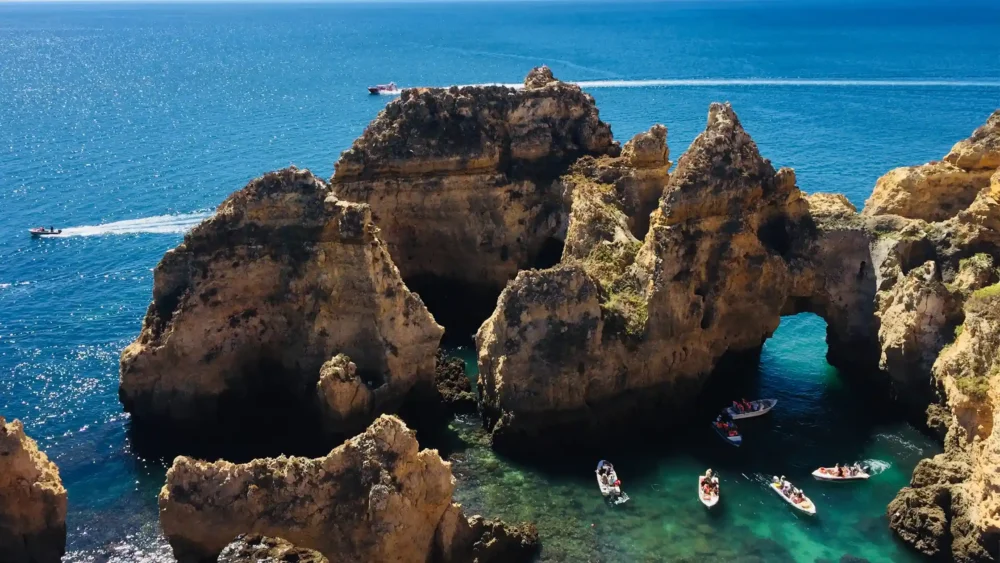Are you planning a solo trip to Portugal? With its stunning beaches, picturesque villages, and rich culture, Portugal makes for an ideal destination for solo travelers.
In this ultimate guide to solo travel in Portugal, we will cover everything from the best time to travel to Portugal to how to connect with other solo travelers.
So join us as we take you on a journey through one of Europe’s most beautiful countries!
Last updated on: 23-01-2024
How safe is Portugal for solo travel?
Portugal is considered a very safe country for solo travel. It is known for its friendly and welcoming atmosphere, making it an excellent choice for those traveling alone. Here are some key points to consider when traveling solo in Portugal:
Portugal is one of the safest countries in Europe and the world, with a low crime rate compared to other European countries. Violent crime is almost nonexistent, and petty crimes like pickpocketing happen very rarely.

The country holds the 7th spot on the Global Peace Index. The GPI is a creation of the Institute for Economics and Peace (IEP) and stands as the foremost global measure of worldwide tranquility.
What is the best time to visit Portugal for solo travelers?

The best time to visit Portugal for solo travelers depends on your preferences and interests. Here are some recommendations based on different factors:
- Peak tourist season: the peak tourist season in Portugal is from June to August. If you enjoy a lively atmosphere and don’t mind crowds, this might be the best time for you.
- Festivals and activities: May and June are great months to visit if you’re interested in attending local festivals and events.
- Avoiding crowds: If you prefer to avoid crowds, consider visiting during April, May, or September. These months are also good times to visit and offer a more relaxed experience.
- Beach and surfing: For beach lovers and surfers, the best time to visit is during summer (July and August). However, be aware that it can get quite hot during this time, which might not be ideal for city explorations.
- Winter months: If you don’t mind colder and rainy weather, you can visit Portugal during the winter months for lower prices and fewer crowds.
What are the most important holidays and festivals in Portugal?
Portugal is known for its vibrant culture and numerous festivals and events throughout the year. Some of the most important holidays and festivals in Portugal include:
- Carnaval (February/March): A lively celebration with costume parades, dances, and street parties, taking place across Portugal.
- Holy Week (April/May): A week of religious festivities leading up to Easter, with processions and events throughout the country.
- Fatima Pilgrimage (May 13th): One of Portugal’s most famous pilgrimages, commemorating the vision of the Virgin Mary in Fatima.
- Feast Day of Saint Anthony (June): A religious celebration in Lisbon, honoring the city’s patron saint with processions and festivities.
- Arraial Pride (June): A gay pride event in Lisbon, featuring a parade and various cultural activities.
Keep these festivities in mind when determining the appropriate travel date, as this can affect the price of tickets and hotels.
How to meet other solo travelers in Portugal
To connect with other solo travellers in Portugal, there are several options available. Joining local Facebook groups and meetups dedicated to solo travellers in Portugal can be a great way to connect with like-minded individuals.
Another option is to stay in hostels or guesthouses that offer common areas for socializing, allowing you to meet fellow travellers.
Participating in group activities such as guided tours, cooking classes, or outdoor adventures can also provide opportunities to connect with others.
If you prefer a more organized approach, consider a travel buddy app. With Likeplan, you can search for travel buddies even before your trip, based on your destination and travel dates.
Create your own trips or activities, or join others’ events.

Is Portugal expensive for solo travelers?
For most travelers, a daily budget of $60-$80 USD (€50-€75 Euros) is sufficient, covering the cost of food, transportation, and a little extra for attractions in cities like Lisbon and Porto.
If you visit smaller cities, the cost should be lower, and you can get away with $40-$60 per day.
Here are some prices to consider:
- Accommodation: Hostel room: €22-35, Basic room for two: €50-80, Self-catering apartment (including Airbnb): from €80.
- Transportation: Lisbon metro ticket: €1.50.
- Food: Meia de leite (café latte): €2-3, Bifana (pork cutlet sandwich): €3-5, Dinner for two: from €30.
- Drinks: Beer at the bar: €2-4.50.
- Average daily cost: €50-75.

What are the best places in Portugal to visit for solo travelers?
Here are the best places in Portugal for solo travelers to visit:
- Lisbon: The capital city offers a vibrant atmosphere, historic sites, and a lively hostel scene for solo travelers.
- Porto: Known for its picturesque streets, port wine, and beautiful architecture, Porto is a must-visit destination in Portugal.
- Algarve: Popular beach destinations in the Algarve region include Lagos, Albufeira, Portimão, and Tavira, offering beautiful coastlines and a relaxed atmosphere.
- Évora: A great destination for history enthusiasts, Évora is a UNESCO World Heritage site with well-preserved Roman ruins and a charming medieval town center.
- Sintra: A picturesque town near Lisbon, Sintra is known for its stunning palaces, castles, and gardens, making it an ideal day trip or overnight stay for solo travelers.
These destinations offer a mix of historical sites, cultural experiences, and natural beauty, making them perfect for solo travelers looking to explore Portugal.
What are the best ways to get around in Portugal?
There are several ways to get around in Portugal, depending on your preferences and budget. Here are some of the best options:
- Trains: Portugal has a decent railway network connecting major cities and towns. Trains are fast, comfortable, and relatively affordable. However, they may not reach every destination, and local services can be limited on weekends.
- Cars: Renting a car provides the most flexibility and allows you to explore remote locations at your own pace. Be aware of toll roads, parking, and fuel costs when renting a car in Portugal.
- Ferries and Boats: Ferries and boats are available for traveling along the coast and across rivers, offering a unique way to explore Portugal’s waterways.
- Bikes: Cycling is becoming increasingly popular in Portugal, with dedicated cycle paths appearing in major cities and rural areas. This is an eco-friendly and healthy way to explore the country.
- Trams and Funiculars: Trams and funiculars are available in some cities, such as Lisbon, and can be a fun way to explore the urban landscape.
What are 5 must try dishes in Portugal?

Here are 5 must-try dishes in Portugal:
- Pastel de Nata (Portuguese Custard Tart): A popular and delicious dessert, known for its creamy custard filling and flaky pastry.
- Bacalhau (Salted Cod): A staple in Portuguese cuisine, often served in various ways, such as bacalhau à brás (shredded cod with potatoes and onions) or bacalhau com natas (cod with cream).
- Piri-Piri Chicken: A spicy and flavorful dish made with chicken marinated in a piri-piri sauce, typically served with rice and salad.
- Caldo Verde (Green Soup): A traditional Portuguese soup made with potatoes, kale, and chouriço sausage, often enjoyed during the colder months.
- Polvo à Lagareiro (Octopus with Olive Oil and Potatoes): A delicious seafood dish featuring tender octopus cooked with olive oil, potatoes, and other ingredients.
Pepijn is the founder of Likeplan. He mainly writes about solo traveling. With over 10 completed solo trips, he writes from his own experience with the mission to encourage other people to go out and explore by themselves.

